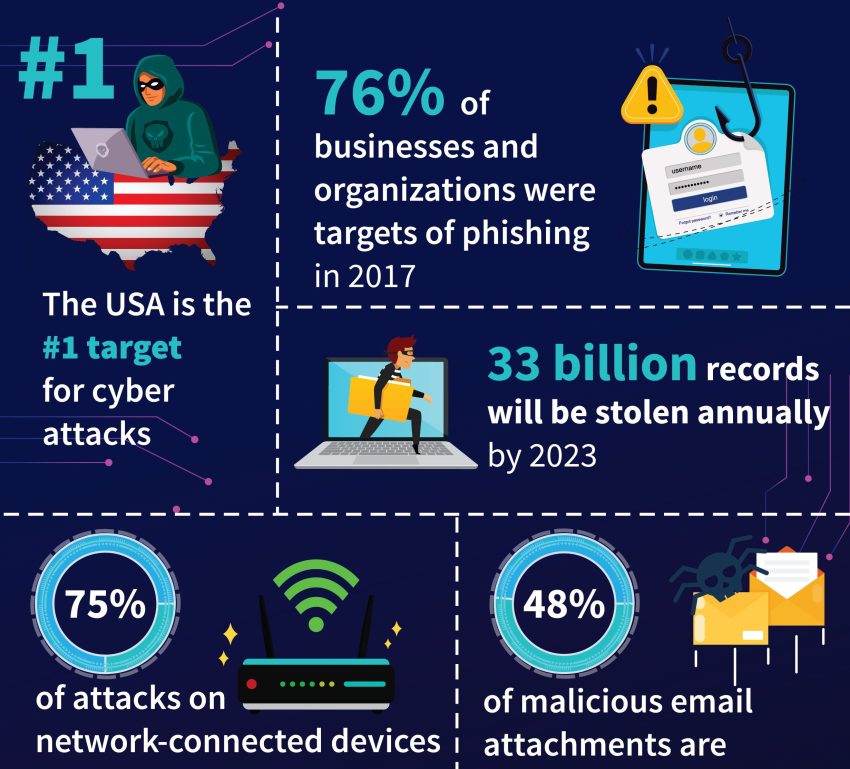In an increasingly digital world, businesses face a multitude of digital threats. Cyberattacks are becoming more sophisticated, capable of causing severe damage to businesses of all sizes. As the cyber threat landscape evolves, organizations must take proactive measures to safeguard their digital assets. One such measure is cyber insurance, a growing industry that aims to provide financial protection against cyber risks.
Understanding Cyber Insurance
Cyber insurance, also known as cyber risk insurance or cyber liability insurance, is an insurance policy designed to protect businesses from financial losses and damages caused by cyberattacks and data breaches. It provides coverage for expenses related to investigating and managing a cyber incident, recovering lost data, repairing damaged systems, legal costs, public relations efforts, and even potential liability claims from affected customers.
The Importance of Cyber Insurance
In today’s interconnected world, no organization is completely immune to cyber threats. Despite implementing advanced cybersecurity measures, breaches can still occur. Cyber insurance acts as a financial safety net, ensuring that a business can recover and protect itself in the event of an attack. It provides a sense of security to both business owners and their stakeholders, as they know they are financially protected against unexpected cyber incidents.
Key Benefits of Cyber Insurance
1. Financial Protection
Cyber insurance protects businesses from the potentially devastating financial consequences of a cyber attack. The costs associated with remediation, legal fees, regulatory penalties, and reputational damage can be significant. With cyber insurance, organizations can mitigate these costs and continue their operations without severe disruptions or financial strain.
2. Incident Response Assistance
When a cyber incident occurs, immediate response is crucial to minimize its impact. Cyber insurance policies often include access to expert assistance in incident response. This can range from IT forensic services to PR professionals who can manage communication strategies post-incident. These services help organizations navigate the complex aftermath of a cyber attack more effectively.
3. Third-Party Liability Coverage
Cyber insurance also offers protection against potential liability claims from affected customers, partners, or third parties. If sensitive customer data is compromised, resulting in financial losses or identity theft, the affected parties may file lawsuits. Cyber insurance helps cover legal costs and potential damages resulting from such claims, safeguarding businesses from crippling legal battles.
4. Reputation Management
The damage inflicted upon a business’s reputation after a cyber incident can be long-lasting and hard to recover from. A cyber insurance policy often includes coverage for public relations efforts to manage and restore the brand’s reputation. Being able to navigate the media and public perception surrounding a cyber attack is essential for maintaining customer trust and loyalty.
Choosing the Right Cyber Insurance Policy
When selecting a cyber insurance policy, it’s crucial to assess the needs and risks specific to a business. Factors to consider include the size of the organization, the nature of its operations, the value of its digital assets, and its exposure to cyber threats. Working with experienced insurance professionals who specialize in cyber risk can help tailor a policy to match the unique requirements of the business.
Conclusion
Cyber insurance plays a vital role in today’s digital age. As cyber threats continue to grow, businesses must take proactive steps to safeguard their assets and financial viability. With the right cyber insurance policy in place, organizations can confidently navigate the challenges of cyber risks, allowing them to focus on growth, innovation, and their core business activities.

